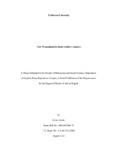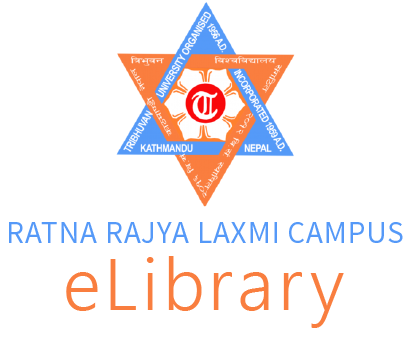Please use this identifier to cite or link to this item:
http://eibrary.ratnarajyalaxmicampus.edu.np:8080/handle/123456789/62Full metadata record
| DC Field | Value | Language |
|---|---|---|
| dc.contributor.advisor | Adhikari, Yadab | |
| dc.contributor.author | Karki, Kishor | |
| dc.date.accessioned | 2020-12-29T10:19:58Z | - |
| dc.date.available | 2020-12-29T10:19:58Z | - |
| dc.date.submitted | 2018 | |
| dc.identifier.uri | http://202.45.147.228:8080/handle/123456789/62 | - |
| dc.description.abstract | The aim of this study is to explore the realm of new female subjectivity in Paulo Coelho's Adultery. Since female subjectivity is a broad term, the research is narrowed down to discuss new (meaning recent) female roles and boundaries and analyze social-constructionism versus self-constructionism in Coelho’s work. How does the female protagonist Linda acts and reacts in her world with the encumbrance and predicaments she encounter? How are they similar and dissimilar in terms of social constructionism and selfconstructionism? Hence, this thesis basically aims at comparing the subjectivities of the heroine and the societal forces that shape their characters. In the first chapter, the focal point is Linda as a socially constructed character. The critical background will depend on major critics on Third-Wave feminism like Rebecca Walker. Furthermore, sex relations are explored according to the theorists. The third chapter concentrates on Linda as a self-constructed character, immune to societal forces in Coelho’s Adultery. The closing chapter sums up the main points. The author’s approaches to his work are also shortly presented and appraised. | |
| dc.format.extent | 46 | |
| dc.subject | M.A. English | |
| dc.title | New Womanhood in Paulo Coelho’s Adultery | |
| dc.type | Thesis | |
| Appears in Collections: | Theses | |
Files in This Item:
| File | Description | Size | Format | |
|---|---|---|---|---|
| 400330_Karki_Kishor.pdf | 595.6 kB | Adobe PDF |  View/Open |
Items in DSpace are protected by copyright, with all rights reserved, unless otherwise indicated.
